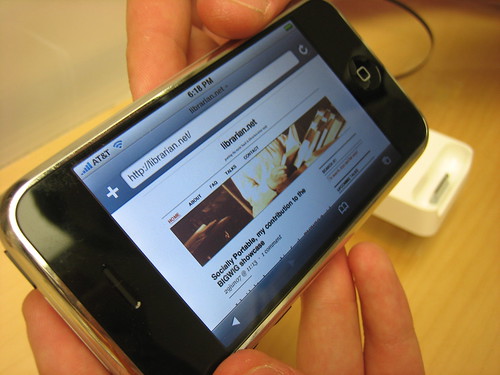I knew something was up when I got an email from the President of the Vermont Library Association this morning saying “Wow nice podcast!”
I was pretty sure she wasn’t referring to the MetaFilter Podcast — though those are quite nice — so I emailed her back asking wtf as politely as I could. That’s how I learned that the interview I did with the Chronicle of Higher Education from a hotel room in Halifax (setting the alarm so I could be alert at 9:30, do I sound like I just woke up?) was part of the CHE podcast and was excerpted, along with the succinct commentary from many other “young librarians” (oh gosh, I laugh and laugh) including my pal Casey and other names you’ll recognize. I’m not entirely sure how to link to CHE articles for non-subscribers, but you can maybe see the article and the amusing iphone photo here. Apologies, as always, for swearing.
